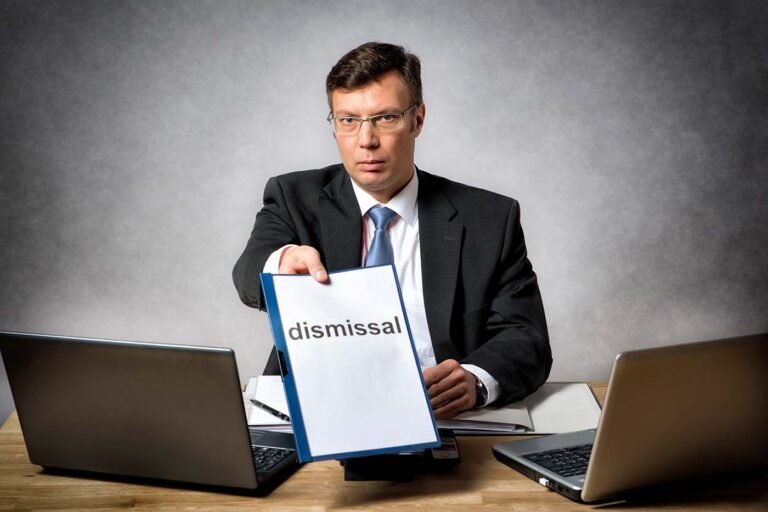In today’s world, our roads teem with risks that need addressing for the sake of public safety. Among the most pressing concerns are reckless driving and DUI offenses. These traffic offenses pose a significant threat, not just for the driver but for others sharing the road. Reckless driving often involves flagrant disregard for traffic laws, which can lead to severe accidents. DUI, on the other hand, represents an impairment-related risk that can be just as dangerous.
We often find ourselves questioning whether these actions stem from a lack of awareness or a moment of poor judgment. Regardless, it is clear that both reckless driving and DUI can have devastating consequences. While they share similarities, each presents unique challenges that warrant attention and understanding in promoting safer roads.
It’s crucial that we cultivate a broader cultural awareness of how these behaviors impact our community. Addressing these issues requires collaborative efforts to implement effective legislation and educational programs. By doing so, we can work towards minimizing these dangers and fostering a traffic environment that is safe for everyone. Learn more about Reckless Driving Vs DUI
Understanding DUI
In exploring the topic of driving under the influence, it is crucial to grasp what constitutes a DUI, how blood alcohol concentration is measured, and the potential legal ramifications. Recognizing the different charges and classifications is equally important.
Definition of DUI
Driving Under the Influence (DUI) refers to operating a vehicle while impaired by alcohol or other substances. It is illegal in all jurisdictions and poses significant risks to public safety. The impairment affects our ability to drive safely, resulting in increased chances of accidents.
Laws establish specific thresholds, which, when exceeded, define a driver as impaired. These thresholds vary by state but generally label a driver over a particular blood alcohol concentration as committing a DUI offense. Recognizing these legal definitions helps us understand the serious nature of these charges.
Blood Alcohol Concentration (BAC) Explained
Blood Alcohol Concentration (BAC) measures the amount of alcohol in a person’s bloodstream. Expressed as a percentage, a BAC of 0.08% is typically the legal limit in many jurisdictions. This level indicates impaired judgment and coordination.
BAC is influenced by several factors, including weight, gender, and how much alcohol was consumed over a certain period. Various tests, such as breathalyzers and blood tests, may be used by law enforcement to determine BAC. By understanding BAC, we can better appreciate how alcohol affects our ability to operate a vehicle safely.
Legal Consequences of DUI
The legal consequences of a DUI conviction can be severe and lasting. Penalties may include fines, jail time, community service, and a criminal record. Some states require offenders to install an ignition interlock device, preventing the vehicle from starting if alcohol is detected.
A DUI conviction can lead to increased insurance rates and potential loss of livelihood. Additionally, repeat offenses carry escalated consequences, highlighting the need for adherence to laws designed to keep us safe. Understanding these legal outcomes informs us of the gravity of a DUI charge and the importance of compliance.
DUI Charges and Classification
DUI charges and classifications vary based on the severity of the offense and prior convictions. A first-time DUI may be classified as a misdemeanor, often signifying less severe penalties but still carrying significant consequences.
However, repeated offenses or incidents causing injury or death elevate the charge to a felony. Depending on the state’s interpretation, the felony charge outcomes include longer jail sentences and additional restrictions. Knowing these classifications allows us to comprehend the variable nature of DUI penalties across different scenarios.
Understanding Reckless Driving
Reckless driving is considered a serious traffic offense with significant repercussions. It can result in penalties like fines, license suspension, and possibly even jail time. Understanding the charge process can help those accused navigate the legal system more effectively.
Definition of Reckless Driving
Reckless driving refers to operating a vehicle in a manner that shows willful or wanton disregard for the safety of persons or property. It often includes excessive speeding, aggressive lane changes, and ignoring traffic signals.
Specific laws can vary by jurisdiction, but the essence remains. Unlike a simple traffic violation, reckless driving implies a degree of negligence that suggests an indifference to the law and the safety of others. Such actions can endanger lives and lead to severe legal consequences. Understanding these distinctions is crucial for anyone who wishes to responsibly share the road.
Penalties for Reckless Driving
Penalties for reckless driving can be severe and vary from one jurisdiction to another. Common repercussions include fines, points on one’s driving record, and license suspension. More serious cases may lead to imprisonment, particularly if the action results in injury or death.
In many areas, a reckless driving charge can remain on one’s record, affecting insurance rates and future driving privileges. It’s vital that we approach this offense with due consideration, understanding the potential long-term impacts it could have on our driving status and financial situation. Such penalties serve not just as punishment but also as a deterrent to prevent future violations.
Reckless Driving Charge Process
The process for a reckless driving charge often begins with a traffic stop by law enforcement, followed by issuance of a citation. The accused is typically required to appear in court, where evidence such as witness testimonies and police reports are presented.
Our appearance in court could lead to a conviction or acquittal, depending on the strength of the evidence. In cases of conviction, the court will determine appropriate penalties based on the circumstances and applicable laws. Understanding this process can significantly impact our defense strategy and the outcome of the case, particularly when contested with appropriate legal representation.
DUI vs. Reckless Driving
When comparing DUI and reckless driving, we find notable differences in legal implications, impacts on driving records, and consequences for driving privileges. Each carries a unique set of penalties and repercussions affecting a driver’s future.
Key Differences Between Reckless Driving and DUI
Reckless driving typically involves operating a vehicle with willful disregard for safety, such as excessive speeding or erratic lane changes. This charge often depends on the driver’s behavior and circumstances observed by law enforcement.
DUI, or driving under the influence, is specific to alcohol or drug impairment, with blood alcohol content (BAC) playing a crucial role. While both offenses imply dangerous driving, DUI directly ties to substance consumption, whereas reckless driving focuses more on driving behavior.
Impact on Driving Record and Insurance Rates
A DUI can lead to severe long-term effects on one’s driving record, with multiple points added, impacting us for years. Reckless driving also affects our record but might result in fewer points depending on jurisdiction.
Insurance rates are typically more affected by a DUI. Higher premiums are expected due to the perceived increased risk, whereas reckless driving might result in a more moderate increase. Insurers use our driving records to assess risk, making it crucial to understand how each charge influences costs.
How DUI and Reckless Driving Affect Driving Privileges
DUI often results in more stringent consequences for driving privileges. License suspension or revocation is a common penalty, with the duration influenced by factors such as BAC level and prior offenses.
Reckless driving can also lead to suspension, but such outcomes can be less severe compared to DUI. Both offenses might require us to complete specific programs to regain full driving privileges, such as traffic school for reckless driving or a substance abuse program in DUI cases.
Legal Remedies and Defenses
In legal challenges involving reckless driving and DUI, our approach needs to be thorough and strategic. Understanding the available defenses, negotiating plea bargains, and engaging an experienced lawyer are essential components.
Fighting a DUI or Reckless Driving Charge
When defending against DUI or reckless driving charges, we have several legal avenues. These include challenging the validity of evidence, such as breathalyzer results, or questioning the legality of the traffic stop. Mistakes in procedure can significantly affect the outcome, as well as identifying any potential violations of our rights during arrest or detention. It’s crucial for us to gather evidence, alibi witnesses, and scrutinize the conduct of law enforcement. This can reinforce our defense and potentially lead to dismissal or reduction of charges.
Plea Bargains: Plea Deal and Wet Reckless
A common approach to resolving such charges is negotiating a plea bargain. In a DUI case, a “wet reckless” charge might be a viable alternative. This involves pleading guilty to reckless driving with alcohol involvement but entails lesser penalties than a DUI conviction. We consider this option based on the specifics of our case, potential penalties, and consultation with legal advisors. It can result in reduced fines, shorter license suspension, or lesser community service obligations. Negotiating plea deals requires understanding the legal ramifications and working closely with our attorney to achieve the most favorable outcome possible.
Role of a Reckless Driving Lawyer
Engaging a reckless driving lawyer is pivotal in navigating these complex legal waters. They provide us with critical insight into the laws and legal precedents that apply to our case. A lawyer will assess the strength of the prosecution’s evidence and help devise a suitable defense strategy. Their familiarity with local courts and relationships with prosecutors can be advantageous in securing reduced sentences or alternative penalties, like counseling programs. Legal advice also includes preparing us for court appearances, guiding us through each stage of the process, and ensuring our rights are protected throughout the legal journey.
Preventative Measures and Education
Reckless driving and DUI pose significant dangers on our roads. Enhancing public safety relies on effective education and promoting cautious behavior. By focusing on these areas, we can mitigate risks associated with drowsy and intoxicated driving, ultimately protecting our communities.
Improving Public Safety through Education
Educational campaigns play a critical role in reducing traffic violations and accidents. Our efforts in educating the public can include workshops, seminars, and school programs that emphasize safe driving principles. Highlighting the consequences of traffic violations encourages compliance with traffic laws and raises awareness about the risks of impaired and drowsy driving.
Community service initiatives are valuable for offenders, offering a chance to learn from mistakes. This hands-on approach helps drivers internalize the importance of public safety. Additionally, disseminating information about the legal consequences, such as fines, license suspension, and penalties involving blood tests, reinforces the seriousness of reckless driving and DUI offenses.
The Importance of Caution and Good Judgement in Driving
Promoting caution and responsible driving behavior is essential for accident prevention. As drivers, exercising good judgment involves recognizing signs of fatigue and avoiding drowsy driving. We must stress the significance of planning rest breaks on long trips and avoiding alcohol consumption before driving.
Encouraging drivers to be vigilant and aware of their surroundings fosters a safer driving environment. By adopting defensive driving techniques, individuals can better anticipate hazards and react promptly. Highlighting the personal and societal benefits of cautious driving underscores our responsibility to protect others on the road and contributes to overall public safety.
Concluding Thoughts
As we reflect on reckless driving and DUI, it becomes evident how crucial awareness and responsibility are for road safety. Both pose significant dangers. Our primary focus should be on prevention through education and enforcement.
Effective traffic laws serve as the backbone of safe driving practices. By adhering to these guidelines, we contribute to safer roads. We must remain vigilant about the risks associated with all forms of dangerous driving.
Reckless driving often involves aggressive behavior, like speeding or ignoring signals. On the other hand, a DUI typically results from impaired judgment due to substances. Each has severe consequences, including legal penalties and potential loss of life.
Our communities benefit from initiatives that raise awareness about these issues. Workshops, seminars, and public campaigns can provide valuable insights and encourage safer driving habits.
Efforts to improve vehicle technology can also play a role. Features that assist with safe driving can contribute to reducing the incidents of both reckless driving and DUI. Our commitment to advocating for safety and awareness can lead to positive outcomes on and off the road.
By working together and supporting stringent enforcement of traffic laws, we can aim to minimize these dangers. Let’s prioritize safety and take collective steps towards reducing the occurrence and impact of reckless driving and DUI. Our roads deserve conscientious drivers.















